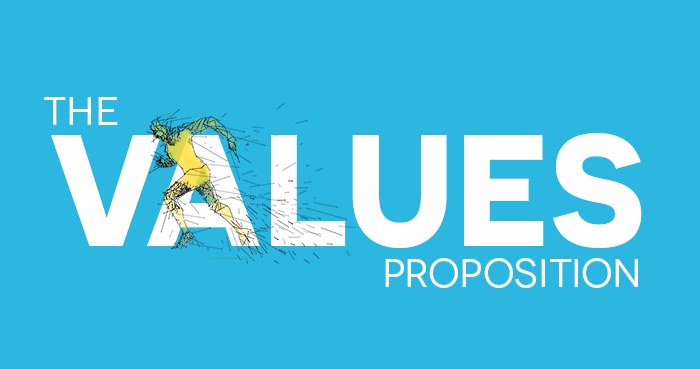
The Values Proposition: Building a Stronger Canada through Values-Based Sport
Through the spring of 2018, the Public Policy Forum (PPF), in partnership with the Canadian Centre for Ethics in Sport (CCES), hosted a series of five regional roundtables: April 13 in Toronto; May 2 in Vancouver; May 24 in Winnipeg; May 30 in Halifax; and June 5 in Montreal. These roundtables explored actions and policies aimed at ensuring values-based sport is an intentional and fundamental part of the Canadian sport system, from playground to podium.
Each roundtable was a full day and included a range of representatives from various levels within the formal Canadian sport system, as well as representatives from community organizations that offer sporting experiences to marginalized and under-represented demographics. The roundtables began with an introduction from Paul Melia, President and CEO of the CCES, who provided context on the state of sport in Canada, an overview of the initiatives that have informed this project, and the need for values-based sport. Participants were organized into small groups and over the course of the day discussed:
- the meaning and manifestations of values-based sport,
- the barriers preventing values-based sport from happening,
- levers of change (included as Appendix A), and
- actions toward a more intentional values-based Canadian sport system.
Additionally, each roundtable featured a guest speaker or panel presentation to provide regional context and inspiration. Participants heard from the following guests at the respective roundtables:
- Toronto – Robert Witchel, Executive Director, Jays Care Foundation
- Vancouver – Cindy Crapper, Recreation Services Coordinator, City of Vancouver
- Winnipeg – True Sport Lives Here Manitoba Committee
- Glen Bergeron, Professor, Department of Kinesiology and Applied Health, Athletic Therapist, University of Winnipeg
- Calvin Hawley, Vice President, Baseball Manitoba
- Greg Guenther, Senior Manager, Sport Development, Sport Manitoba
- Jeff Powell, General Manager, Canadian Sport Centre Manitoba
- Gary Swanson, Community Resource Coordinator, City of Winnipeg
- Kevin Chief, Vice-President, Business Council of Manitoba
- Halifax – Chris Stover, Executive Director, Canadian Centre for Ethics in Public Affairs
- Jamie Ferguson, Chief Executive Officer, Sport Nova Scotia
- Jack Hanratty, Provincial Coach, Rugby Nova Scotia
- Montreal – Matthew Pearce, President and CEO, The Old Brewery Mission
- Claudine Labelle, Founder and President, FitSpirit
- Fabrice Vil, Co-founder and President, Pour 3 Points
In total, approximately 130 people participated in the five roundtables. Below is a summary of the discussions that resulted. The arguments and perspectives are not attributed, however, a participant list is included in Appendix B at the end of the report.
Common language, please
In any environment, items that are measurable, tangible, focused and easily able to bridge the continuum from concept to action are the things that most often garner our time, energy and resources. In the sport system, these criteria are equally true; in fact the whole sport system is currently structured around these tangibles, such as technical skills, time, score, etc. Therefore, while the concept of a good sporting experience — one that is values-based and grounded in the seven True Sport Principles — is something people agree is desirable, roundtable participants indicated throughout a need for common language and shared definitions for all stakeholders. Confusion over the exact meaning of “values-based sport” was evident, because while some of the examples that were shared illustrated heartwarming initiatives taking place in the sport community, it was more difficult to articulate and reflect how those positive actions were the result of a “values-based sport experience”. Even the interchangeability of the language used — values-based, principles-driven, quality sport, good sport — was a source of confusion for participants. To be intentional about having a values-based sport system in Canada is to be able to easily articulate what this means and, from there, to inform what success looks like, to facilitate and capture results, and be able to communicate and demonstrate those results.
In the short term, participants encouraged the CCES to highlight one to three key drivers, those that would have the biggest impact on demonstrating and showcasing values-based sport at all levels of play. Bringing about this type of change will involve changing the narrative of sport. In particular, effort must be made to equate the integrity of sport with the presence of the seven principles and to change the perception that winning and values-based sport can’t or don’t co-exist, to an understanding of how winning with the seven True Sport Principles in play yields better results all around.
Inclusive process
While common language for values-based sport was a consistent request, a regular word of caution was also provided: The True Sport Principles are not new or exclusive to any one organization. Care needs to be taken in how the principles are framed as they are integrated into the values held by others, and any misperception of one group “owning the principles” needs to be dispelled. Therefore, the presentation of the principles and their underlying values requires an inclusive and culturally sensitive process including, but not limited to, Indigenous Peoples and new Canadians.
Furthermore, sport is full of ethical tensions, from economics and accessibility to inclusion and competition, so advancing values-based sport within the Canadian sport system requires a recognition of how these tensions and values-based sport can co-exist; this cannot be an either/or choice. One participant recommended focusing on achieving pride in sport, because pride comes from one’s ability to contribute, to give back, and a recognition of being part of something bigger than yourself. Pride is a good indicator of the adoption, progression and integration of values-based sport.
Structures to support values-based sport
Just as language matters, so does structure. Structure holds and influences many of the levers of how sport is done in Canada. During the roundtables, we heard a range of perspectives on the structure of sport in Canada, from blowing up the entire system and starting again to maintaining the structure and making incremental changes. Where the discussion settled was exploring what a best-in-class organization for values-based sport would look like, and from there figuring out how form and function match up so that values-based sport is reflected in everything from how people are welcomed into the system to how issues are managed. Because values-based sport can quickly be overlooked as a nice-to-do rather than a need-to-do, the consequences of anything other than a values-based sporting experience need to have some teeth — whether it is funding or facilities access — something that reinforces the must-do.
As the Canadian sport system progresses on its journey to an integrated and intentional values-based system, there is an opportunity to learn from other countries. Norway, Australia, Switzerland and the U.K. were some of the notable countries mentioned at the roundtables. The British sport system has recently been through a large systemic change, with U.K. Sport focused on the funding and development of Olympic and Paralympic Sport and Sport England on building an active nation for all. In December 2015, the U.K. government released Sporting Future: A New Strategy for an Active Nation, which emphasizes the importance of grassroots sport and local and national cross-cutting impacts sport can have. In Switzerland, to receive government funding, national sporting organizations (NSOs) are evaluated on a number of aspects in addition to performance. These examples illustrate how changing the drivers for a sport system can fundamentally change the approach.
While discussing the framework and structure for Canada, a number of next-step initiatives and areas of future research were identified. These included:
- Researching the societal and economic benefits of values-based sport to build the case for the contributions sport makes across government ministries and departments, such as justice, education, health and employment;
- Asking the CCES to research lessons learned from its role in Canada’s anti-doping program, with the potential of implementing a similar model for safe sport in Canada;
- Researching lessons learned from the practices and programs supporting long-term athlete development;
- Developing an FAQ document for values-based sport, including how it applies to such processes as background checks and coach certification;
- Developing a measurement tool and indicators for values-based sport.
The sport system consists of many interdependent stakeholders, all of whom are essential contributors in Canada’s journey to be a values-based sporting nation. One roundtable suggestion was to develop a stakeholder matrix charting measurement and progress. Below are the identified stakeholder groups, as well as the ideas from the roundtables regarding the potential role for these groups and their engagement in the sport system.
Sports Clubs
The club level is recognized as the front line in the sport system. These organizations contribute significantly, ensuring play can happen. In recognizing that the majority of people who participate in sport in Canada have experience at the club level, there were many suggestions of how to better equip and encourage sports clubs to be leaders in values-based sport. Yet, particularly during the values-based integration phase, there would be greater accountability, and likely reliability, on provincial/territorial sports organizations (P/TSOs) and national sports organizations (NSOs), as many clubs are often strained by capacity challenges.
Support aimed at sports clubs could take the form of a tool kit or services provided by the P/TSO to the local club, assisting them on how to integrate the principles and ensure they are in balance, providing templates for policies and practices to values-based sport. Participants felt there should be consequences for those who do not implement values-based sport. The P/TSOs could work with the clubs to conduct sport audits and to provide any additional support required. Organizations could include values-based sport criteria within their bylaws and policies, tying its significance to, for example, insurance, space allocation and funding. In taking this approach, it will be critical to communicate and demonstrate how this change will positively impact clubs and not just become a time-consuming requirement. The rugby beginner’s guide places values at the core of the sport experience. This guide could be used as a template for other sports, as well as a tool for myth-busting and addressing misconceptions of values-based sport. Essentially, participants suggested a hybrid between a compliance model approach, which is top down and works to the lowest common denominator, and a commitment model, which takes a continuous improvement approach and recognizes everyone is working toward a greater goal — values-based and principle-driven sport.
Once again there are lessons learned and best practices that could be modified from other industries and community initiatives. For example, at one roundtable it was suggested clubs institute a players’ advisory committee in every club, to give voice to the participants. Many felt the voice of the player is often overlooked. Parents may be involved at the governance level of the club, but that does not necessarily include the voice of the participant. At another roundtable, creating a community sport ombudsman was suggested. This role would support all clubs in the community and take a values-based approach to the resolution of a range of disputes at the community level of sport.
For children involved in club-level play, there is a tension created by conflicting approaches. Many roundtable participants felt children under the age of 10 should not be specializing in a particular sport and instead should experience multiple sporting opportunities. The conflict arises when the multi-sport approach is taken to the extreme and pressure mounts to be involved in every sport to be successful later on. This tension illustrates the need for consistency in language and in the integration of values-based sport from first entry and throughout all levels of the sport system.
Parents
Parents play a critical role in the experiences of many athletes. Often parents are paying the registration fees, purchasing equipment, providing transport, and may also be involved in coaching and/or in the governance of the club. In many ways, parents are gatekeepers to the athlete. This means parents and guardians are critically important and play a key role in bringing about change to the Canadian sport system. Putting emphasis and focus on educating parents about values-based sport, the impacts of behaviours, and the outcomes for themselves and for athletes could make parents and guardians tremendous advocates.
Coaches
Throughout the roundtables, there was a lot of discussion about the role and importance of coaches. Like parents and guardians, this is another stakeholder group critical to bringing about change in the Canadian sport system. During the roundtables, coaches were likened to teachers; yet while there are high standards and expectations for the education of teachers before they go into a classroom, many coaches don’t have the same supports and expectations while taking on this important role of educator. This discussion led to suggestions to increase the awareness of, support for and practice of values-based sport focused on coach education. Suggestions included ensuring values-based sport is a centrepiece in entry-level coaching seminars and making sure values-based sport courses have been taken as a requirement for coaching accreditation. There were also some innovative ideas suggested such as providing open workshops to share and set out the expectations of values-based sport for coaches. At the community level, many coaches are in voluntary positions and therefore building the pipeline for future coaches is always important.
Relating back to an earlier point about values-based sport having some teeth to ensure compliance, we heard suggestions to set accountability standards and expectations for values-based coaching behaviour. This is an item that could be central to the coach’s code of conduct agreement.
Education
Another area of opportunity to foster is systemic integration of values-based sport through the education system. The education system, like the sport system, evolves with and contributes to the long-term development of people.
Participants advocated getting sport back into schools; not that sport would be the sole responsibility of teachers and schools, but middle schools in particular are a pivotal time for ensuring positive sport experiences. This is the age range where dramatic decreases in the levels of participation in sport are experienced.
There were also suggestions to explore ways to influence and integrate values-based sport into the teachers’ college education curriculum, and in college and university programs related to sport, such as kinesiology and sports medicine. This reinforces the desire to provide multiple mediums, examples and ongoing exposure to values-based sport on and off the field of play.
Exposure and education about values-based sport is important for all stakeholders, including athletes. Only a few high school and university athletes attended the roundtables, but their message was strong and significant. Initiative needs to be taken to integrate values-based sport into education for athletes. The athletes were forthright about being performance driven, especially as they reach higher levels of play, so education and a partnership approach with coaches will be required.
Corporate
Several corporate stakeholders attended the roundtables. The role and opportunities for corporate partners to be advocates and champions of values-based sport would be a good next-step initiative to further develop.
Discussion involving the role of corporate stakeholders centred on sponsorship and the financial contributions they make at various levels within the Canadian sport system. Ideas shared included corporations being recognized for demonstrating a commitment to values-based sport and the granting of corporate tax credits if the sports they fund are values-based. Corporations could also use the True Sport Principles as criteria in choosing and allocating funds to sports and sports organizations. This latter example would provide an incentive to sports organization to integrate and showcase values-based sport.
Sponsorship is a particularly significant part of elite-level sport, and it is important to have education and incentives for high-performance sports organizations and their athletes to be ambassadors demonstrating values-based sport on and off the field of play.
Media
Roundtable participants were very supportive of the role and potential for media to influence and be a champion of values-based sport. Participants recognize that the way media covers sports stories matters and, through their coverage, media outlets can celebrate and showcase values-based sport and elevate athletes who are values-based sport role models. It was also suggested the sport system should showcase its creativity in developing public awareness messaging of values-based sport, taking inspiration from the Bell Let’s Talk initiative or Pink Shirt Day. This type of high-calibre public awareness campaign has the potential to move the dial on the understanding and adoption of values-based sport.
Government
Through the roundtables, we heard three primary roles for all levels of government to take regarding values-based sport:
- Government leaders with responsibility for sport should be champions of values-based sport;
- Partnering to showcase the broader societal impacts of sport;
- The provision of government funds for sport to facilitate values-based sport.
Federal/Provincial/Territorial
At the federal level, this starts with the minister of sport being an advocate and champion for values-based sport. The minister must ensure values-based sport is a part of all funding and programming deliverables set out by the ministry. Participants encouraged the minister of sport to work with other ministerial colleagues, at the federal and provincial/territorial levels, to showcase the positive impacts sport has on deliverables within their ministries, such as justice, health and industry. It would be best if this was supported by data and research, so together with the Canadian sport community, a meta-analysis could be conducted of the tangible impact of sport, and specifically, values-based sport. In particular, participants felt a partnership with health would be a priority, focusing on the proactive health-related outcomes of sport, both physical and mental. The sports community could advocate for proactive investments into values-based sport and the return on investment and savings that that would yield relative to reactive health spending.
In terms of government funding, a model similar to the federal-provincial/territorial health funding model should be considered, where Sport Canada could set minimum requirements for NSO funding that would facilitate values-based sport. Consequently, at the provincial/territorial level, government departments could implement values-based requirements as a condition of funding the sports organizations they support. Because government funding is so important to sports organizations, there is opportunity to determine the levers most appropriate to facilitate and measure values-based sport through the sport system.
In preparation for the 2021 federal government’s review of the Canadian Sport Policy, part of this process could include the development of a new code of conduct for sport, one more representative of values-based sport. Sport Canada could lead a consultation series about what the True Sport Principles mean for the various sports organizations in Canada.
Municipal
In addition to the three roles relevant to all levels of government, it was suggested that applicable measures on values-based sport be added to the municipal portion of the census. The City of Calgary included something of this nature in the last census, allowing it to capture information about skateboard parks.
While sport has to be recognized as a business, access to facilities are a major need for all stakeholders in the sports community. Municipalities could leverage their facilities, working on and piloting business modelling for ways that facilities could be incentivized vis-à-vis values-based sport.
What’s next
This series of roundtables has helped to raise the consciousness of the journey that is underway within the Canadian sports community to transform the principles and drivers of sport in this country. At this point in the journey, it is essential to outline exactly what values-based sport is, to clarify principles and values, and then to determine how best to incorporate this essential concept into the modus operandi of sport, ensuring it is part of everyday sport experiences, from playground to podium. The next phase of this project is a 1.5-day event in Ottawa on October 15-16 that will build on the roundtables and begin to shape the vision and evidence for a truly values-based sport system in Canada.
Examples of levers of change to encourage values-based sport (VBS) in Canada
| “Top Down” (National; F/P/T; System-wide) |
|
| Sector | Opportunity |
| Government | § provincial and territorial governments mandate the integration of VBS into elementary and high school phys-ed curriculum in addition to intramural sport and school teams |
| § sports organizations must meet specific VBS criteria to qualify for federal or provincial funding; must agree to annual VBS audits | |
| § provincial, national or international sports events must meet VBS criteria to qualify for government support (starting with the bid process) | |
| § (with corporate support) national public awareness campaign | |
| Corporate | § funding/sponsorship offered only to organizations and initiatives that meet specific VBS criteria |
| § large sports equipment manufacturers incorporate VBS branding into their products and promotional materials | |
| Sport | § VBS becomes the common language or lexicon for the communication/demonstration of Olympic and Paralympic values in Canada |
| § universal code of conduct adopted across all sports | |
| § VBS is adopted as a fundamental underpinning to all certification requirements for Canadian coaches and officials | |
| Philanthropic | § (with government, corporate) national awards program to recognize exceptional VBS programs |
| Media | development and national dissemination of public service announcements (e.g., Canadian Olympic Committee’s “Virtue and Victory” campaign) |
| “Bottom Up”
(Municipal; Community; Grassroots) |
|
| Sector | Opportunity |
| Government | § user agreements for recreational facilities give preference to organizations/clubs that meet VBS criteria |
| § municipal government embeds VBS principles in all sport, physical activity and recreation programming (e.g., City of Vancouver) | |
| § VBS signage displayed prominently throughout sport and recreation facilities | |
| Corporate | § professional sports teams champion VBS and use it as a platform for community engagement initiatives |
| Sport | § through a co-ordinated social movement, parents demand a VBS experience for their children |
| § clubs develop VBS awards for athletes, coaches, volunteers | |
| § community-level ombudsman program established with decisions grounded in VBS | |
| Philanthropic | § community-based funders subsidize only those clubs that meet specific VBS criteria |
| Media | § clubs work with local media outlets to encourage positive stories about local athletes, coaches, parents, officials, etc. who are “living” the values-based sport experience |
| Frank Abels
Triumph Marketing |
Susan Ahrens
Field Hockey Canada |
James Anderson
Freestyle Canada |
| Elio Antunes
ParticipACTION |
Chino Argueta
University of Winnipeg |
Andrew Armstrong
Triathlon BC |
| Hani Ataan Al-Ubeady
Immigration Partnership Winnipeg |
Geoff Ayi-Bonte
New History Consulting Inc. |
Glen Bergeron
True Sport Lives Here Manitoba |
| Gololcha Boru
IRCOM Inc. |
Sheila Bouman
viaSport |
Cheri Bradish
Ryerson University |
| Douglas Brown
University of Manitoba |
Andrea Carey
Sport for Life |
John Cawley
The J.W. McConnell Family Foundation |
| Marina Chisholm | Jarel Cockburn | Nathalie Cook
Cimoroni and Company group |
| Janis Cookson
City of Markham |
Lindsey Crampton
Canadian Tire Jumpstart |
Sylvain Croteau
Sport’Aide |
| Dawn D’Arcy
Nova Scotia Community College |
Karri Dawson
True Sport Foundation |
Jason deVos
Canada Soccer |
| Marco Di Buono
Canadian Tire Jumpstart Charities |
Jocelyn East
Canadian Heritage |
Ige Egal
Toronto Inner-City Rugby Foundation (TIRF) |
| Kelsey Fahie
Athletics Nova Scotia |
Jamie Ferguson
Sport Nova Scotia |
Leah Ferguson
Manitoba Aboriginal Sports and Recreation Council |
| Meaghen Fillion
Manitoba Aboriginal Sports and Recreation Council |
Karen Furneaux
I Promise Performance, Inc. |
Liesl Gambold
Dalhousie University |
| Lisa Gannett Saint Mary’s University |
Alex Gardiner U Manitoba Bison Sports |
Charles Gascon Sport et Loisir de l’île de Montréal |
| Kaelin Gillis
Department of Education and Early Childhood Development |
Doug Gore
Ontario Trillium Foundation |
Tanya Gracie
Public Policy Forum |
| Bill Greenlaw
Communities, Sport and Recreation Province of NS |
Greg Guenther
Sport Manitoba |
Tara Hahto
U SPORTS |
| Gail Hamamoto
City of Markham |
Jack Hanratty
Sport Nova Scotia |
Jason Hansford-Smith
Sport Nova Scotia |
| Calvin Hawley
True Sport Lives Here Manitoba |
Jennifer Heil
viaSport
|
Dustin Heise
Canada Snowboard |
| Katherine Henderson
Curling Canada |
Faith Hezekiah | Jesse Hiltz
Canadian Centre for Ethics in Public Affairs |
| Jocelyn Huot
Club de ski Mont-Tremblant |
Sue Hylland
University of Ottawa
|
Jason Jansson
Ontario Basketball |
| Derek Johnston
Face Value Communications Inc. |
Ryan Jones
Rugby Ontario |
Thomas Jones
Sport for Life |
| Thomas Jones
Sport for Life |
Jennifer Keith
Jennifer Keith Consulting Inc / Synchro BC |
James Keogh
University of Victoria |
| Rébecca Khoury
MAKO |
Susan Kitchen
Coaches Association of Ontario |
Kate Kloos
viaSport |
| Jared Kope
PacificSport Fraser Valley |
Claudine Labelle
Fillactive / FitSpirit |
Éliane Laberge
Jeux de la rue |
| Lorraine Lafrenière
Coaching Association of Canada |
Katie Lebel
Ryerson University |
Kasey Liboiron
Canadian Centre for Ethics in Sport |
| Alexandra Lojen
Institut National du sport du Québec |
Debbie Low
Canadian Sport Institute Ontario |
Sarah MacNeil
Canadian Sport Centre Atlantic |
| Julie Mahoney
Ville de Montréal |
Larissa Mankis
Rugby Ontario |
Anne Marie Dupras
CCES- Board Member |
| Laura Marquez
Snap Tech |
Katrusia Marunchak
City of Hamilton |
Ian McArton
Hockey Winnipeg |
| Jeff McCurdy
City of Markham |
Don McKenzie University of British Columbia |
Darcy McKillop
Sport NB |
| Glenn McLean
Canadian Tire Jumpstart |
Janet McMahon
Sport Manitoba |
Joanne McRae
Canadian Centre for Ethics in Sport |
| Paul Melia
Canadian Centre for Ethics in Sport |
Anne Merklinger
Own the Podium |
Rosalin Miles
Aboriginal Physical Activity Cultural Circle |
| Bruce Miller
Creaddo Group |
Nizar Moosa
City of Markham |
Tyler Mosher
Canadian Paralympic Committee and B.C. Games Society |
| Tanya Mruck
MLSE LaunchPad & MLSE Foundation |
Eric Myles
Canadian Olympic Committee |
Tom Nicholson
University of Winnipeg |
| Karen O’Neill
Canadian Paralympic Committee |
Matthew Pearce
Old Brewery Mission |
Jacques Pelletier
Canadian Centre for Ethics in Sport |
| Caitlin Pentifallo Gadd
viaSport |
Lauren Perry
Saint Mary’s University |
Jeff Powell
Canadian Sport Centre Manitoba |
| Laurence Proulx Therrien
Pour 3 Points |
Guillaume Proulx Goulet
Fédération québécoise d’Ultimate (FQU) |
Cathy Rober
Tyson Bailey Fund |
| Scott Russell
CBC |
Troy Ryan
Hockey Canada / Canadian Sports Centre Atlantic |
Allison Sandmeyer-Graves
CAAWS |
| Kate Scallion
Dalhousie University |
Michelle Schmidt
Boys and Girls Clubs of Winnipeg |
Sarah Schwendemann
IRCOM Inc. |
| Ryan Shay
Athletics Nova Scotia |
Janine Stephens
Manitoba Rowing Association |
Anitra Stevens
Athletics Nova Scotia |
| Susan Stiles
City of Markham |
Joshua Stolar
Sport Medicine and Science Council of Manitoba |
Chris Stover
Canadian Centre for Ethics in Public Affairs |
| Brett Stovin
University of Manitoba |
Annie St-Pierre
Direction de la promotion de la sécurité (MEES) |
Gary Swanson
City of Winnipeg |
| Jack Taunton
University of British Columbia |
Sarah Teetzel
University of Manitoba |
Carolyn Trono
Sport for Life Society |
| Joanie Trudel
Ministère de l’Éducation/secteur loisir et sport |
Josh Vander Vies
Lawyer and former Paralympian |
Fabrice Vil
Pour 3 Points |
| Tom Walker
viaSport |
Amy Walsh
Sport Nova Scotia |
Shae Weekes
University of Manitoba |
| Marie Welton | John Wilkinson
WeirFoulds LLP |
Bill Woodley
Moresports |
| Jay Young
New Westminster Parks and Recreation |








